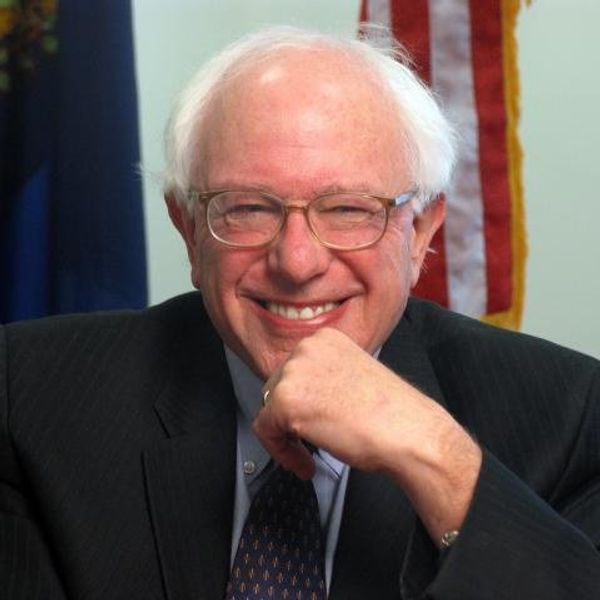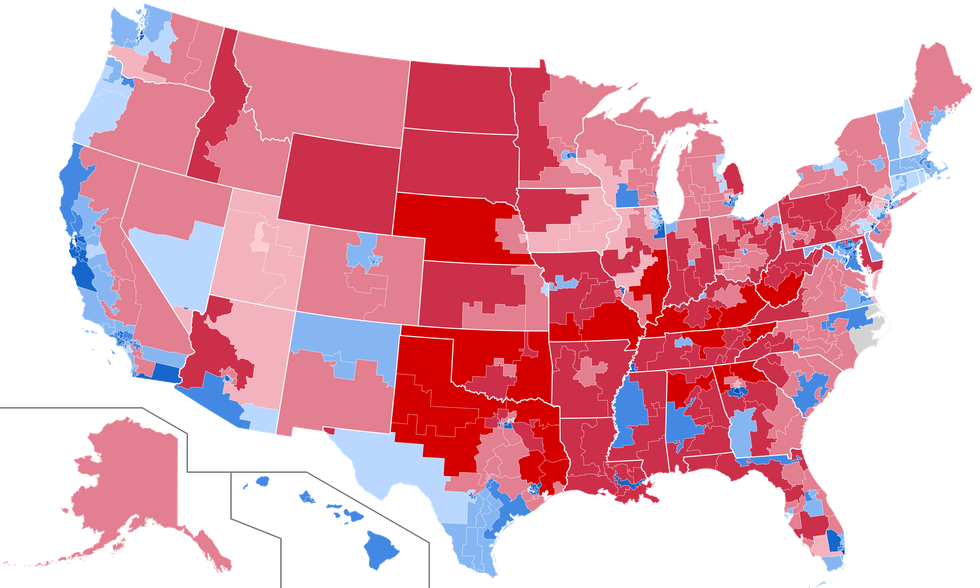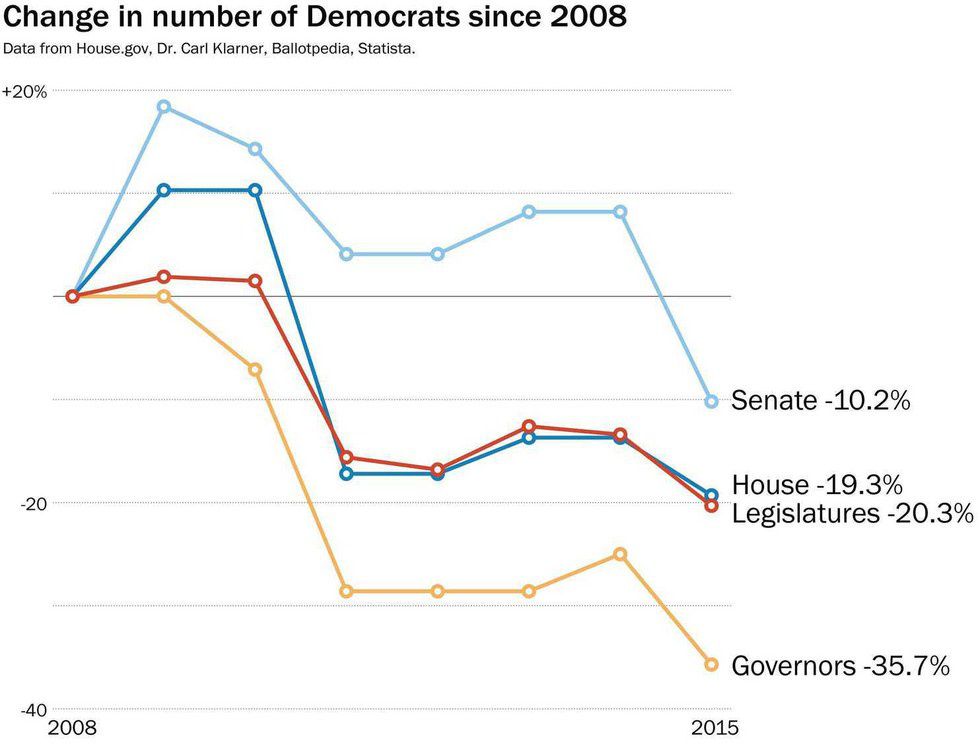In electing Tom Perez as DNC chair, the Democratic Party has sent an uncertain message to millions of progressives who call this party home.
This article is not coming from a conservative nor a Donald Trump supporter, but a concerned progressive. Following the Democratic Party's loss to perhaps the most unpopular general election candidate in history, the party had a second chance to elect a new vision, to unite the party, and to put an end to an old Democratic Party which in many ways, is no different than the Republican Party.
It is clear that the current Democratic Party is no place for 78% of Americans who oppose Citizens United. The Democratic Party is no place for 43% of democratic primary voters who voted against the party establishment. The party is no place for 79% of Americans who support a single-payer federal health care system. The party is no place for 51% of Democrats who oppose the party's super delegate system.
The point of this all is not to fear monger, but to provide a glimpse of this country's future if the Democratic Party is serious about not changing a single thing regarding their platform and outreach. On the other hand, if the Democratic Party is ready to change and engage with what the majority of America wants, they would make a radical 180-degree turn in this direction as soon as possible.
In recent years, the Democratic Party has championed harmful trade deals, did very little to go after the pharmaceutical and health insurance industries or lower the prices of prescription medications, failed to prosecute corrupt bankers in large financial institutions, and have created a status quo atmosphere for all of this to never be changed.
The Democratic Party, which has been the party of large donors and special monetary interests, recently voted against banning lobbyist contributions from entities working in opposition to the working and middle-class families in this country. The party voted against this policy, introduced by one of their own former Presidents, Barack Obama. You can tell a lot about a party or a candidate based on where they get their money from. It says absolutely nothing about your support from the American people when your bank accounts are filled with corporate donations from a rich and powerful few, and not filled with millions of small contributions from real everyday Americans.
The Democratic Party will not abolish a superdelegate system in the nominating process, which allows a handful of elected officials to vote against their constituents. This is made evident by a certain Democratic candidate winning around 70-80% of a state in the primaries while almost 100% of that state's superdelegates vote for the other candidate.
The Democratic Party must start supporting progressive candidates across this country to prevent the Republican Party from gaining a supermajority in the House, Senate, and state legislatures. If they fail to do this in the next two years, President Trump's reelection at this point is basically an absolute certainty and the House, Senate, and states will be lost for years to come.
The Democratic Party must demonstrate that they have learned from losing to whatever it is we are now witnessing in the White House. They own a share of this mistake. In many ways, it can be considered a contradiction to be an establishment Democrat and to oppose President Trump.You cannot lose to President Trump while claiming that the party did nothing wrong and does not need to change or include anyone else. This logic should concern the tens of millions of Americans who oppose The President.
The Russian hacking theory, regardless of whether or not you believe it, does not explain how a man like Donald Trump made it this far in the first place. There is something else going on with these voters that the Democratic Party must figure out and address.
It is clear that you cannot always win elections with money, as demonstrated by 2016. The party's finances really took a hit thanks to the massive amount of spending made to stop Donald Trump. This obviously did not work. It is a radical transformation of our political system where money no longer guarantees you a win, but at what cost did we witness this transformation?
Here is what we are up against:
Unfortunately, 2018 midterms were never expected to favor the Democratic Party. It is a dream that many Trump opponents cling to, but one that is significantly unlikely at this time. The party is expected to lose seats in the senate. The House? An even bigger uphill battle for Democrats at this time. This goes to show that the party's efforts are not about President Trump alone. This is about the Democratic Party losing over 1,000 elected seats all over this country in the last 8 years.
When looking at the reality, a downward trend of the party's occupation in public office, the verdict is simple. No blaming the Russians, no blaming Trump, no blaming Bernie Sanders, no blaming third-party voters, no blaming anybody but the Democratic Party itself for losing all of these seats. This is a wake-up call from the progressive base of the party. Democrats are currently not united despite higher ups in the DNC claiming the contrary. There is a real problem here.
About 30% of the country belongs to each the Republican and Democratic Party. Roughly 40% are Independent. This means that most of the country does not simply fall in line behind a party ideology. It is incredibly difficult to win an election without Independent voters on your side. These Independents, if you recall from the primaries, overwhelmingly supported Senator Sanders and the progressive message over his opponent, Hillary Clinton. It is not simply about uniting Democrats, but appealing to Independents.
It is already difficult to turn out Democratic voters. Republican voters are loyal and will largely vote for whichever Republican candidate is on the ballot. The Democrats must not simply recruit Democrats, but loyal Democrats who see hope in their candidate. We do not turn out due to fear or to stop another candidate, we turn out due to hope and to vote for a candidate.
No matter how many times "we are united" gets repeated, it will not be true unless by some miracle we see action. The clock to 2018 has already started. Will the deck be stacked against progressive candidates who, by the numbers of Senator Sanders' primary votes, represent 43% of the Democratic Party electorate? Many more if you include Independents who were unable to vote? Tens of thousands more if you count voters who had their affiliations and registration status mysteriously changed or removed before the primary?
This is what the Democratic Party is up against. There has to be real, meaningful change at this very moment, up to and beyond 2018 if the Democratic Party wishes to have even the slightest chance of winning back the House, Senate, state legislatures, governorships, and the White House in 2020.























